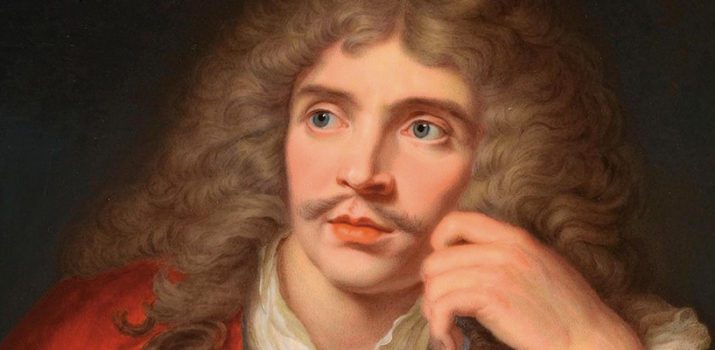The world after Molière


400 years ago, Jean-Baptiste Poquelin dit Molière, one of France’s most illustrious comedians and playwrights, was born in Paris. We are taking this opportunity to pay tribute to him through a selection of documents, on display in the Agora of the BCUL, site Riponne, until January 2023. The selection is also available on eLectures.
Why is he so popular? If we still revel in his texts and their astonishing modernity, it’s because in the mid-17th century, Molière invented the social comedy that brought to the people, by making them laugh and think at the same time, the great questions that still resonate today: the relationship to power, the place of women in society, class struggle, health, religion, etc. He also explored the mysteries of human nature (vanity, avarice, desire or hypocrisy) with a new causticity. He also explores the mysteries of human nature (vanity, avarice, desire and hypocrisy) with a newfound causticity. Through these “profound farces”, the playwright brings people together and unifies them: this is undoubtedly why today we speak the “language of Molière”, constitutive of both our identity and our common heritage.
Molière also invented another kind of theatrical performance: the comédie-ballet. As early as 1661, many of the playwright’s plays began to intersperse music, song and dance between spoken acts. Molière often cast himself in a sung role. The tastes of Louis XIV, a dancing enthusiast and dancer himself, were thus satisfied. Who would be his composer of choice? Jean-Baptiste Lully. It was the beginning of a winning and fruitful tandem, to which choreographer Pierre Beauchamps was added.
After the break-up between the “two Jean-Baptiste’s”, Molière turned to Marc-Antoine Charpentier, a young and still unknown musician. Their collaboration resulted in the “comédie mêlée de musique et de danse” Le malade imaginaire. During the performance at the Palais-Royal in 1673, Molière fell ill on stage and died shortly afterwards. After Molière’s death, the comédie-ballet declined and was soon outmoded. It did, however, leave a remarkable legacy in French theater, with its use of incidental music. As for the playwright, he continues to inspire numerous composers: Frank Martin, Jules Massenet, Charles Gounod, Richard Strauss, Rolf Liebermann, Gian Francesco Malipiero, Alberto Franchetti, Erik Satie, Alexandre Tansman, Nino Rota and many others.